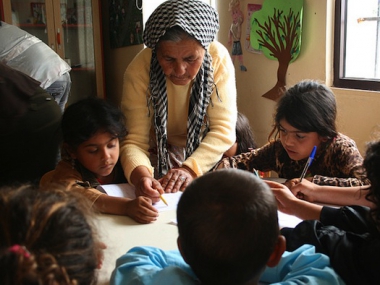Cities empowered to do more for change
Edited on
12 September 2017As we come towards the end of our Roma-NeT Delivery Pilot our partner cities continue to work towards Roma inclusion within an ever evolving policy environment

Their learning continues, but cities are becoming increasingly aware of the power that they have to deliver real change on the ground and to tell other local authorities how they can contribute too.
The development and approval of the Operational Programmes for the next years of EU Structural Funds are mostly still in process. At the outset of the Delivery Pilot we had hoped that the programmes would be already in place, and that the Roma-NeT cities would be in a positon to access some of the new structural funds to further progress implementation of their Local Action Plans (LAPs). Unfortunately, the priorities set out in the new Operational Programmes have not yet been translated into programmes that filter down to City level.
We encouraged partners to look again at the who is involved in their local support group (LSG) to consider whether they are all still the right partners, to assess what experience and skills each member contributes and to be sure that each group has the right mix of skills and know-how. This thinking time has enabled all of our cities to be more focused when they go back to their LSGs. It is also a useful reminder that the LAPs are live, working documents to continually refresh to guide the actions at local level, and to disseminate to key local stakeholders.
The good thing about having the opportunity to prepare and think about what we are doing and why; is that when the calls are announced for the new Operational Programmes our cities will be well prepared to make the most relevant bids to continue their important local actions. The absence of approved Operational Programme has created space and time for some of our partners to build stronger connections with their Structural Fund Managing Authorities to ensure they are well informed about the future priorities and plans emanating from the Roma-NeT action plans.
Communication has been a strong feature of the Delivery Pilot, it has helped partners better understand not only the importance, but also the complexities and essential elements of delivering relevant messages when working in an inclusion environment.
Seeing examples of good practice from the Centre for Independent Journalism, Gitanos con Palabra, Fundacion Secretariado Gitano in Torrent and Almeria was inspirational as was listening to Nora Ritok’s use of accurate and highly descriptive language - not tempered by political influences - to describe the shocking conditions that Roma in some of the most marginalised communities in Northern Hungary live. This masterclass helped to invigorate the partners and to remind them how important the work is that they do.
Marie McLelland in Glasgow told me recently that this was one of the highlights of the Delivery Pilot for her. She explained that:
‘Working on this issue, one can become hardened to the severity of the reality for many Roma. The evocative presentations from Nora Ritok about the situation her organisation is working in in Hungary made me realise that we need to do more of the same to help others better understand the reality and the severity of the living conditions for many Roma.
Words like overcrowding and exclusion don’t accurately explain the situation well. Her presentation rejuvenated me – made me remember why we are working on this issue – It’s about changing people’s lives.’
Having Roma-NeT cities share their experience at the ROMACT/ROMED conference offered the opportunity to extend our influence further and to ensure that the European Commission hears again and again about the importance of cities being at the forefront in the strive for social and economic inclusion of Roma across Europe. The message was clear: what local authorities most need for their Roma inclusion actions is the support of the right types of funds, funds that are flexible and can be tailored to meet the needs and challenges of local communities. The last thing they need is rigid bureaucratic programmes that favour big scale actions which bypass and don’t take into account the real needs of people.
Our partnership still has things to work out and to learn. How do we communicate a stronger message to all about the Roma communities we serve? How do we challenge entrenched discrimination and the negative reporting from much of the media? We still have a lot to consider in this area and lots to share with our peers inside the partnership and outside with other cities. The continued exchange of existing practice and our ideas for the future could gradually begin to influence change in the wider population’s negative attitudes and stereotypical views about Roma.
This interlude between EU programmes has given the cities the opportunity to be better prepared and to become more active with the implementation of mostly small scale, but very important local actions. Through such actions, partners have come to realise that small actions can deliver significant results and can be a very important driver of change. We now know that we don’t always have to think big to create positive change.
Over the remaining few months; as this phase of Roma-NeT comes to an end; it will be very interesting to see what results we have been able to deliver both separately in our own communities and as a collective. What results have been achieved? What difference has this made? Are the partners well prepared to tell others about their experiences? One thing that the Roma-NeT partners all agree on is that openly sharing our challenges, our successes and obstacles is the best means to build confidence and to develop the know-how to effectively deliver for change.
Ann Morton Hyde, Lead Expert - Roma-NeT Pilot Delivery Phase
Photo credits: UNDP Europe and CIS on flickr
 Submitted by Simina Lazar on
Submitted by Simina Lazar on




